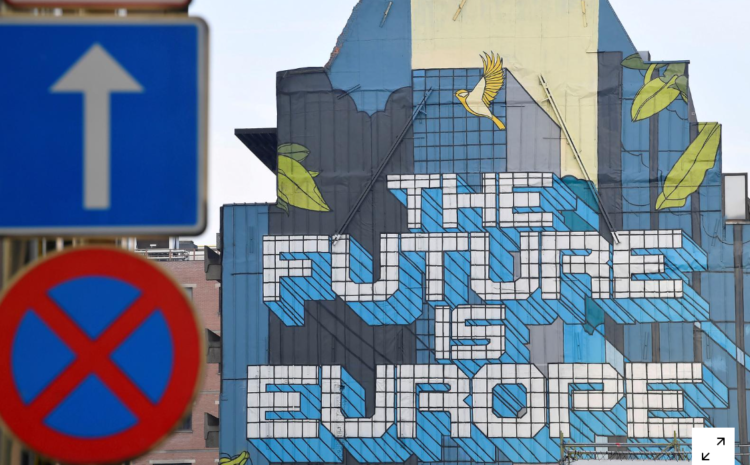UK negotiator David Frost is then due to tell Prime Minister Boris Johnson if he thinks it is worth continuing the tortuous negotiations, and whether a deal on everything from trade to transport and energy cooperation is achievable in time.
A source close to the talks, who spoke on condition of anonymity, said Frost would say agreement was difficult but not impossible if both sides work intensively in the coming weeks.
The EU summit is set to conclude that progress so far is “still not sufficient” to seal a deal, and will also step up preparations for an abrupt split without provisions to avoid trade tariffs or quotas.
This refers to a bill going through the UK parliament that would give the government the power to break that treaty. London says that, if its talks with the EU fail, this measure will be needed to protect trade between Northern Ireland and the remainder of the United Kingdom.
“It is in the interests of both sides to have an agreement in place,” Charles Michel, chairman of the EU leaders, said ahead of the summit.
“This cannot, however, happen at any price. The coming days are decisive. Key issues include, in particular, the level playing field, fisheries and governance.”
These areas, covering state aid and other guarantees of fair competition, fishing rights and dispute settlement procedures, have long been the main sticking points.
Fisheries are crucial to France, where coastal communities are politically influential.
“It is out of the question to sacrifice our fishermen,” a French official said.
DEADLINES
Johnson was due to hold a call with European Commission President Ursula von der Leyen at 1830 GMT.
A UK spokesman said fisheries were the starkest among lingering differences, and that Johnson would decide only after the EU summit whether to proceed with negotiations.
The source with knowledge of Frost’s views said talks so far had clarified potential agreements on aviation and road haulage, energy ties and future coordination of social benefits.
Gaps have narrowed on trade in goods and services, though these still lack precise arrangements on technical detail including designations of origin on products, the source said.
On corporate subsidies, London wants to have two separate, if related, sets of rules, while the EU is pushing for more detailed joint provisions to govern state aid.
The sides remain fundamentally apart on fisheries despite efforts to come closer, the source said.
Johnson previously said he wanted clarity by Oct. 15 on the chances for a deal, and the EU has said an agreement must come this month to give the European Parliament time to ratify it before 2021.
However, sources say the EU could negotiate until mid-November to avoid being blamed for any failure, which would severely damage free trade between the world’s largest trading bloc and the sixth-biggest economy.
Neither the EU nor the source who described Frost’s thinking mentioned a new firm deadline, beyond the need to have a deal in place from Jan. 1.
Additional reporting by Jan Strupczewski, Philip Blenkinsop, Kate Abnett and Elizabeth Piper, Michel Rose; Writing by Gabriela Baczynska; editing by Kevin Liffey and Giles Elgood
Our Standards: The Thomson Reuters Trust Principles

